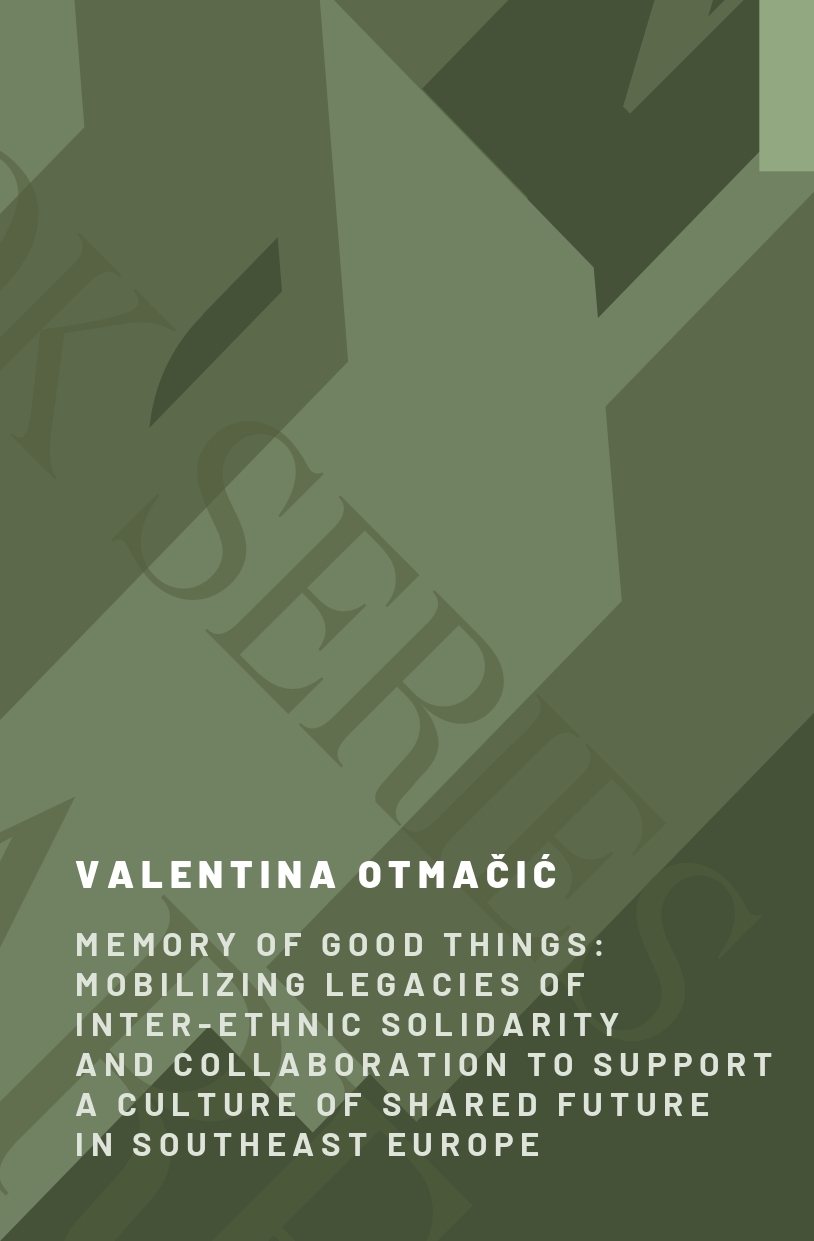
Memory of Good Things: Mobilizing Legacies of Inter-ethnic Solidarity and Collaboration to Support a Culture of Shared Future in Southeast Europe
European integrations: Chapter 23, Chapter 24 SDGs: SDG 10, SDG 16 Author(s): Valentina Otmačić Thematic Area: Active Citizenship and Democratic Institutions, Holocaust Studies, Social Criticism Published: 2024 ISBN: 978-86-82324-69-0 Pages: 19 Language: English Publisher: Institute for Philosophy and Social Theory, University of Belgrade Tags: book | More DetailsThis research challenges the dominant ethnonationalist narratives in Southeast Europe by uncovering and analyzing collective memories of inter-ethnic solidarity and collaboration. By focusing on communities in Croatia and Bosnia-Herzegovina—Gorski Kotar, Tuzla, and Baljvine—that resisted inter-ethnic violence during the 1991–1995 wars, the study highlights the strategic role of positive historical memory in fostering social cohesion and resilience.
The policy relevance of this research aligns with the Sustainable Development Goals (SDGs), particularly SDG 16 (Peace, Justice, and Strong Institutions) and SDG 10 (Reduced Inequalities), by offering evidence-based strategies to counter divisive historical narratives and promote inclusive societies. It also supports key EU integration chapters, notably Chapter 23 (Judiciary and Fundamental Rights) and Chapter 24 (Justice, Freedom, and Security), by demonstrating how historical memory can be institutionalized to reinforce the rule of law, social reconciliation, and democratic governance.
First, this study provides empirical evidence that positive collective memories can serve as a counter-narrative to ethnonationalist divisions, offering policymakers tools to integrate shared histories into education, media, and cultural programming. Second, it underscores the need to institutionalize inter-ethnic solidarity through commemorative practices, history curricula, and transitional justice mechanisms, directly contributing to EU accession benchmarks. Finally, by illustrating how communities have mobilized positive memories in times of crisis, the research offers actionable insights for conflict prevention and reconciliation policies in the Western Balkans and other multiethnic societies.
In a region where historical memory is often weaponized for nationalist ends, this study advocates for a policy shift towards fostering a culture of shared future. By leveraging collective memory as a resource for peacebuilding and democratic development, it directly contributes to both global sustainability goals and the European integration process.
Back
